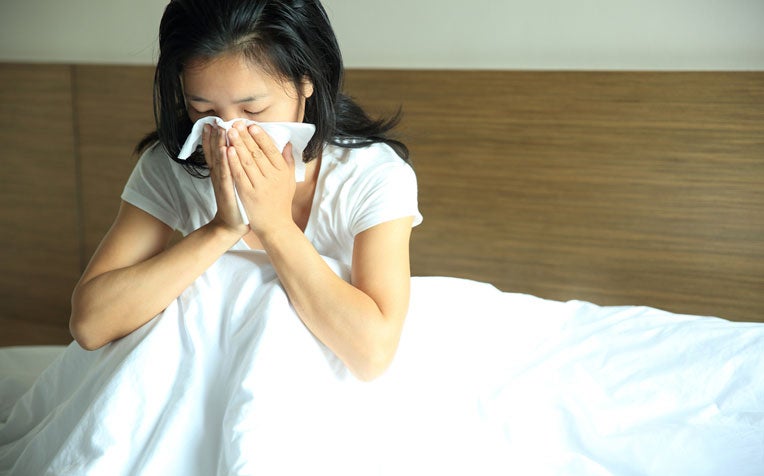HealthXchange will NEVER ask you to transfer money over a call. If in doubt, call the 24/7 ScamShield helpline at 1799, or visit the ScamShield website at www.scamshield.gov.sg.
Pneumonia: Treatment and Prevention

Pneumonia can be treated when detected early.
Pneumonia treatment
"Pneumonia is diagnosed with the help of a physical exam, blood tests, sputum test and a chest x-ray. Treatment is most effective when the condition is diagnosed early. Patients who have mild community-acquired pneumonia are typically treated at home with oral medication, e.g. antibiotics, anti-viral drugs, cough medicine, fever and pain relievers. Rest and a balanced diet can help patients recover. However, more severe infection will require hospitalisation," says Associate Professor Loo Chian Min, Senior Consultant from the Department of Respiratory and Critical Care Medicine at Singapore General Hospital (SGH), a member of the SingHealth group.
Symptoms are likely to ease a few days after the start of pneumonia treatment, with full recovery taking a couple of weeks.
If appropriate pneumonia treatment is not provided, patients may develop complications such as a lung abscess (death of lung tissue which gets replaced by pus), fluid accumulation around the lungs, severe breathing difficulty and bacteria in the bloodstream. The latter can cause organ failure and death.
“About 15 per cent of patients with pneumonia require hospitalisation,” added Assoc Prof Loo.
How to prevent pneumonia
- Practice good hygiene and wash hands frequently and thoroughly.
- Avoid contact with live animals including poultry and birds, and consumption of
raw and undercooked meats. - Avoid close contact with people who are unwell or showing symptoms of illness.
- Observe good personal hygiene.
- Practise frequent hand washing with soap (e.g. before handling food or eating,
after going to toilet, or when hands are dirtied by respiratory secretions after
coughing or sneezing). - Wear a mask if you have respiratory symptoms such as a cough or runny nose.
- Cover your mouth with a tissue paper when coughing or sneezing, and dispose
the soiled tissue paper in the rubbish bin immediately. - Seek medical attention promptly if you are feeling unwell.
- Get an annual flu shot.
- Get vaccinated against pneumonia – doctors especially recommend this for small children, adults over the age of 65, patients with chronic diseases and those recovering from severe illness.
- Stop smoking (if you haven't quit).
- Eat a balanced diet and get regular exercise.
Ref: L20
Check out other articles on respiratory conditions:
Tuberculosis: Types, Symptoms and Risks
Coughing for Weeks? This Could Be Causing It
Adult Asthma: Frequently Asked Questions
How to Survive an Asthma Attack without Your Inhaler
What is Chronic Obstructive Pulmonary Disease (COPD)?
Contributed by
Related Articles
Conditions & Treatments
Public Events
Get the Health Buddy App
© 2025 SingHealth Group. All Rights Reserved.


















 Get it on Google Play
Get it on Google Play